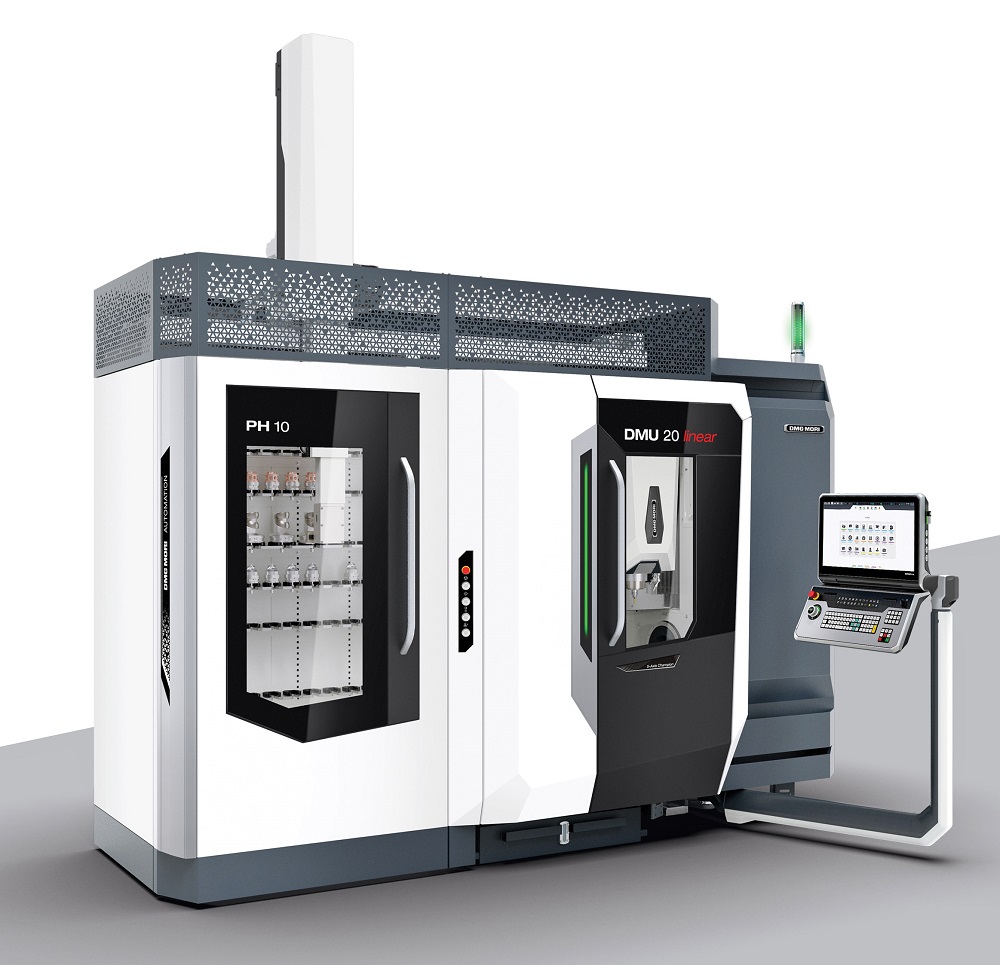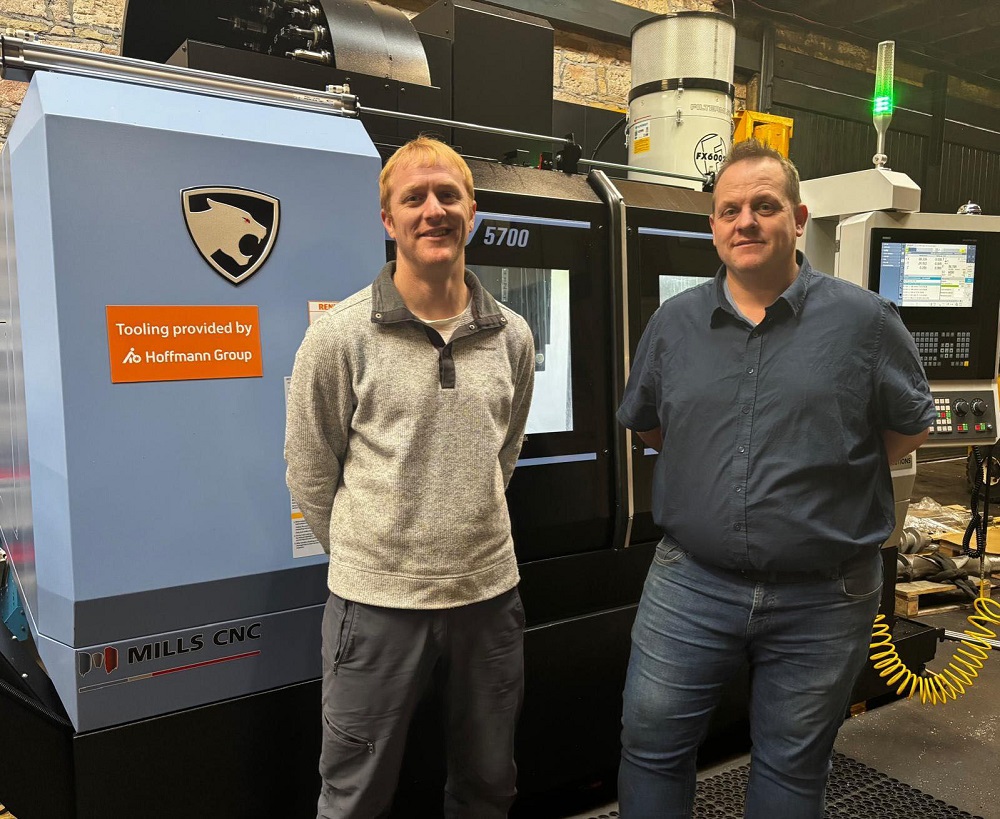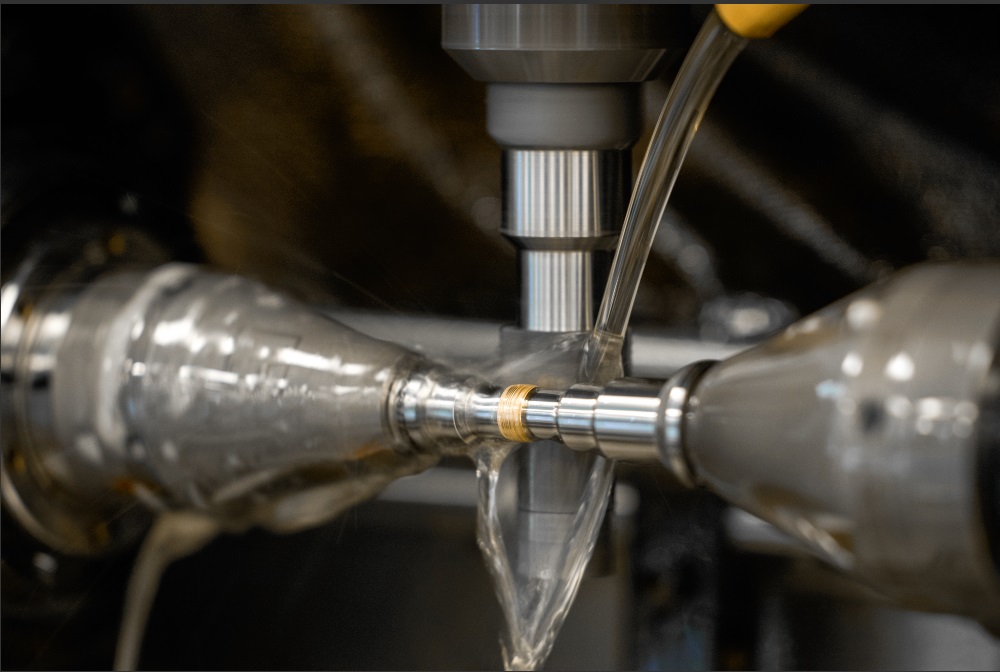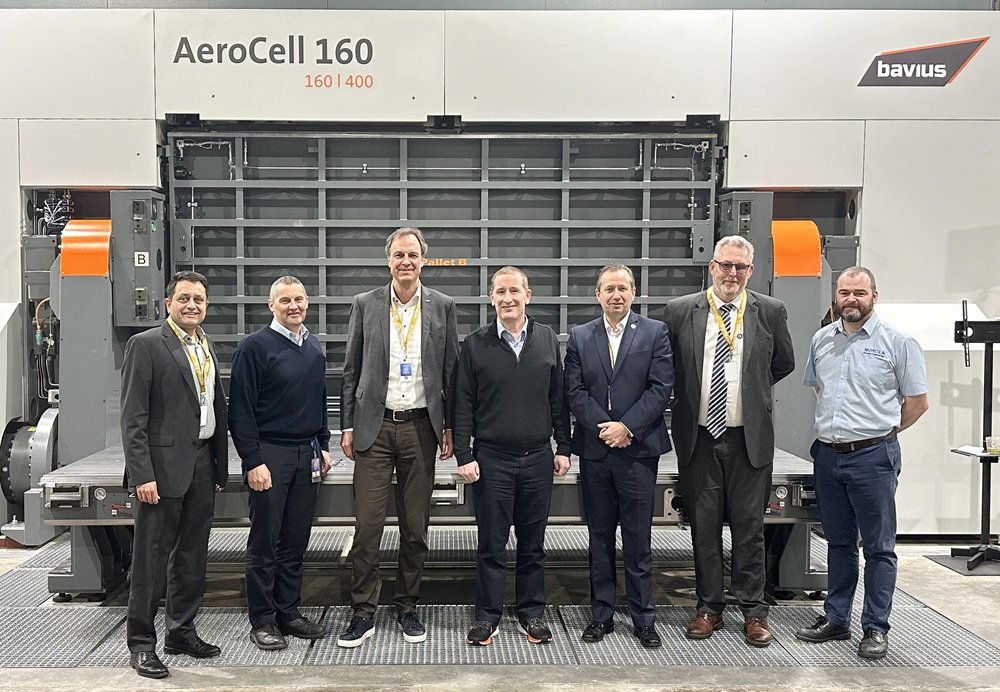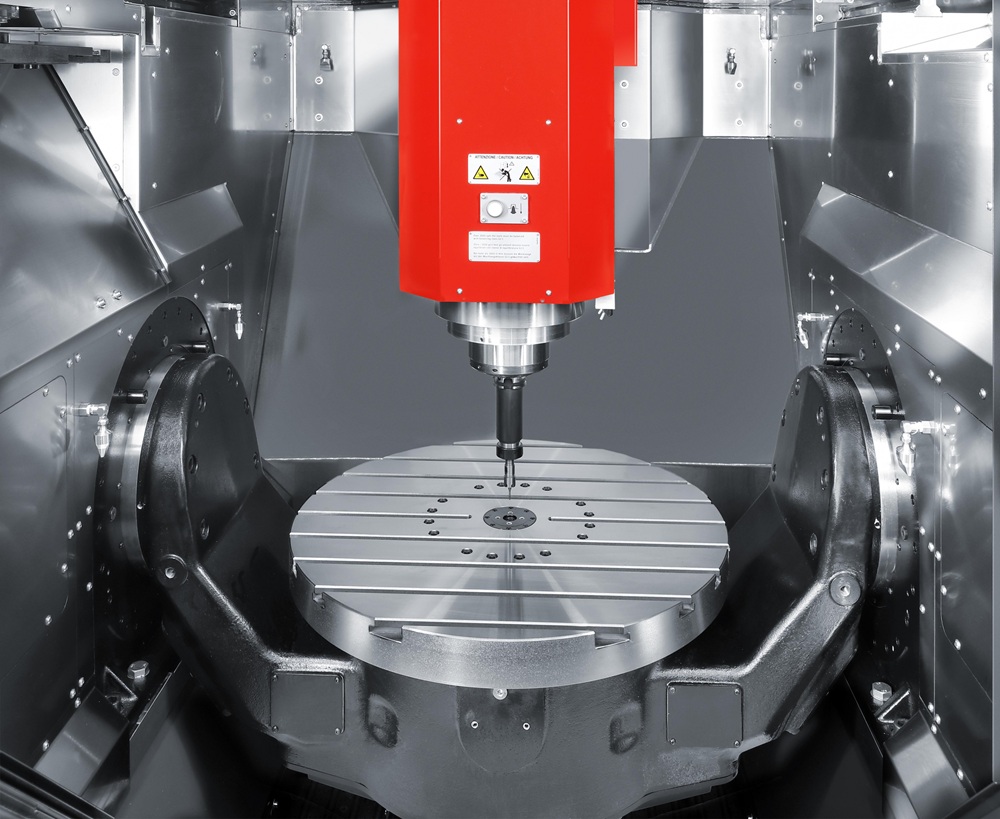Occupying just 3.8 sq m of space on the shop floor, a compactfive-axis machining centre with a working volume of 220 x 370 x 290 mm is now available from DMG Mori. The new DMU 20 Linear can meet a wide range of applications, from the micro-machining of watch components, through EDM electrode and impeller production, to die and mould making.
A rigid, FEM-optimised cast bed and thermo-symmetrical gantry design have been coupled with Magnescale axis position measuring systems to ensure long-term stability and machining accuracy to within single-figure microns.
The A-axis trunnion swivels from +130 to -93°, allowing flexible machining strategies and enhancing the operator’s view of the workpiece. The C-axis table rotates at up to 150 rpm, optionally 1500 rpm, while offering a positioning accuracy of two arcseconds. Zero-point clamping is standard, with the customer able to choose Erowa, Schunk or another make. There is also provision for the vacuum clamping of delicate or thin-walled workpieces.
The machine features a Fischer spindle (HSK 32, 42,000 rpm) as standard, although HSK 32 or HSK 40 spindles up to a maximum of 60,000 rpm are available. If elevated levels of precision are necessaryin combination with long running times, a shaft-cooled version is available for the HSK 40 variant. The tool magazine offers 26 pockets, optionally up to 60 tools, suitable for flexible production requirements with frequent tool changes.
For machining hard, brittle materials such as glass, Zerodur or technical ceramics, the machine is available as a third-generation Ultrasonic 20 Linear. In this model, tool rotation is superimposed with an additional ultrasonic oscillation, reducing the force generated by the tool during machining by up to 50%.
More information www.dmgmori.com






